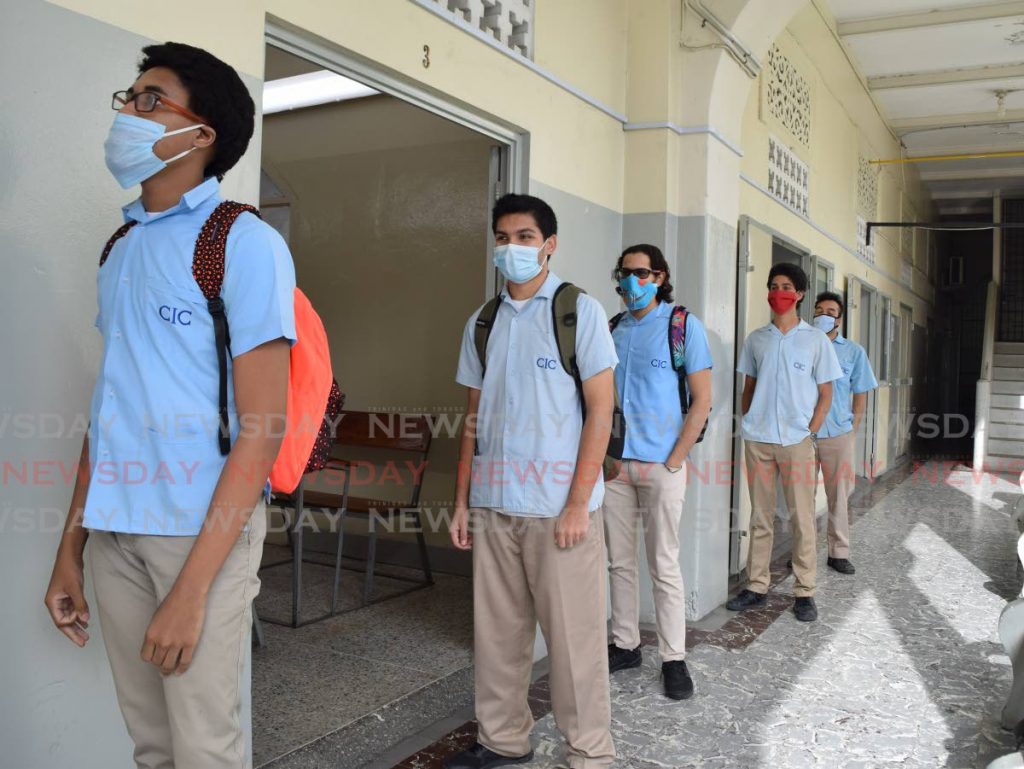Attorney for Cabinet: There can be no 'expectation' of scholarships

SENIOR secondary school students who sit the Caribbean Advanced Proficiency Examination (CAPE) cannot expect to receive scholarships “either at all or in any specific quantity or awarded on any specific criteria.”
This is the position of the Cabinet in its response to a pre-action protocol letter sent to attorneys representing the Sanatan Dharma Maha Sabha, which has threatened to take the Cabinet to court over Government’s scholarship and bursary programme.
The new system reduced the number of national scholarships and introduced bursaries.
“There can only properly be a legitimately expectation that whatever policy is in place at the relevant time will be rationally undertaken and administered fairly with respect to eligible students.”
On Monday, attorney Zelica Haynes-Soo Hon, from the firm Al-Rawi, Haynes-Soo Hon and Co, which is representing the Cabinet, wrote to Rhea Khan, one of the Maha Sabha’s attorneys, telling them their pre-action letter did not set out any arguable claim.
Haynes-Soo Hon also said a number of applications for bursaries have already been received and any application filed by the Maha Sabha for an injunction “will only serve to adversely affect the many vulnerable and needy third parties who would stand to benefit from the bursary programme.”
She said it would be an “undesirable outcome” which would be contrary to the public interest and would strongly militate against the grant of any interim order sought by the Hindu body, and asked the Maha Sabha to reconsider its proposed threat of legal action.
On March 23, attorneys for the Maha Sabha wrote to Cabinet secretary Cheryl Hem-Lee complaining of the cut in the number of national scholarships and of the new bursary system.
They claimed there was no subjectivity in the process and the new system gave no guidance on how a student could qualify. They also complained of the “deliberate removal and complete absence" of academic performance as a criterion.
In previous correspondence, the Maha Sabha’s attorneys were told the March 11 policy, published by the Education Ministry, was final.
In her letter on Monday, Haynes-Soo Hon said the Cabinet was “unable to accept” the "legitimate expectation" claim of the Maha Sabha that the religious body expected that scholarships would continue to be awarded on the basis of merit and academic achievement “as opposed to other arbitrary and subjective criteria.”
She denied another of the Maha Sabha’s assertions. that there had always been a “consistent and unequivocal practice” that scholarships were only ever awarded on the basic of academic grades. She pointed to various categories of government scholarships and financial assistance based on financial need and/or extra-curricular assessment, including developmental scholarships similar to the new bursary system.
Haynes-Soo Hon said there was nothing improper in providing financial assistance “not exclusively limited to academic grades,” since reliance on extra-curricular activities and/or means testing for financial aid were well established internationally and demonstrated by consideration in international tertiary matriculation.
She said means-testing was not unprecedented and was a “perfectly rational and sensible tool” to be used where resources were limited.
“The decision to provide financial assistance of any sort is necessarily and obviously a function of economic and social policy on a macro-scale and is informed by dynamic national development objectives, community needs and circumstances, as well as the allocation of limited national resources.
“These concerns have only become heightened in the present economic milieu,” Haynes-Soo Hon said, adding that the new system focused on the most vulnerable groups, talented students and targeted areas for national development.
Haynes-Soo Hon further told Khan, “There being no expectation that could be engendered that any person would receive financial assistance upon completion of their exams, there can be no complaint of any diminution in the scholarships or in the provision of a new system of bursaries for which applications may be made.”


Comments
"Attorney for Cabinet: There can be no ‘expectation’ of scholarships"